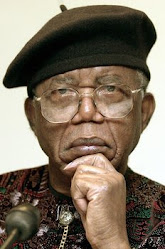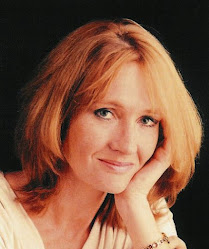Dear Reader, this is the third part of the short story series "Esther's Diary". Please go back to read the previous parts "Exiled" (Part 1), and "Settling Down" (Part 2) so you can follow the story.
ENTRY THREE:
Diary Mu,
I’m six months pregnant now. My baby moves often, my nipples are darker and there are dark splotches on my neck and cheek. I’m more dependent on people now. I can’t do all the household chores I used to do before. I have bought a broom with a long stick attached to it's end, so at least I can sweep where I live. Mama and Onyinye help with the cooking. They cook soup for me, so all I have to do is warm it and make garri. Uzoh my brother comes every Friday after school. He takes off his school uniform, picks up kegs and uses the bicycle to fetch clean drinking water from the busy borehole that serves the entire village, some distance away. He went to the market the other day and bought this large drum where he pours the water he fetches. It lasts till the next time he comes around. I use the water there to cook and I also boil some to drink. When I fall asleep, he studies by candle light because NEPA usually takes the light at night. I can’t thank him enough.
Onyinye is making me “billowy” dresses (maternity gowns) because I can’t enter any of my former clothes. She insists I must look good, but I don’t dress to look good. Maybe it comes from that urge to punish myself for what I have done, I'm not sure. What she does with the local Ankara material is wonderful, she makes good use of the patterns. She bought me some very colourful plastic bangles that I wear always. I went to the market the other day to purchase textile materials for the clothes. The women there clicked their tongues, clapped their hands, rolled their eyes and pointed at me openly. I have become a spectacle. None of them refused to collect my money though. I bought some beautiful Ankara prints from some women who did not seem to be talking about me at the moment. I’m sure they did afterwards. On my way home, not too far from my house, a little boy of about ten years called me “Akuna kuna” (Igbo word for prostitute). If it was three months back when I was still considerably agile, I would have chased him to his door and smacked him silly. This time I watched him run into Mazi (Igbo word for Mister) Ikenna’s house laughing. I think his name is Uche. He must have picked that up while listening to the older people in his house gossip. I walked on hoping (not praying) that God would punish him for my sake at least for being rude to me.
One day, I sat outside because there was no light and inside the house was hot like a furnace. I tied a wrapper above my breasts and my stomach bulged out. One woman came in to ask for Mama. I told her she was not in.
‘When she returns, tell her Adanma and Charity came to see her about the farm.’ She pointed to indicate that Charity was standing outside beyond my view. She ran her eyes over my figure and her lips curled upwards. I nodded and she went. I heard her talking somewhere near the gate, not even bothering to lower her voice.
‘Charity, you will not believe what I saw with this my two eyes now.’
‘What did you see?’
‘Nwa Theresa (that means Theresa’s Child. Theresa is my mother’s name) is pregnant!’
‘Eh?’ Charity sounded both shocked and excited at hearing this.
‘She’s seated there with her big belle. Small children are spoiling oh!’ I heard her clap her hands together in the fashion of gossips. ‘Is that small girl up to fourteen?’ She clapped again and whistled. I pictured her with her hands on her hips.
‘Tufia! (God forbid)…go and see now.’ Adanma urged. I shut my eyes as though I was asleep and sensed Charity staring at me to “see for herself”. In retrospect, I wish I had gotten up and chased them both away. But I was heavy and rightfully ashamed. Who knows, they might have put up resistance. I’m not an aggressive person. Truth be told, I think I might be timid.
Mama says I need to eat good food to help the baby and enrich my breast milk. She keeps reminding me that I’m eating for two anytime I don't seem to be eating enough. Diary, I’m fatter than a pregnant cow. She still tries to persuade me to take akpu. I feel like her daughter now because she has warmed up to me. Sometimes we would sit outside and she would tell me funny stories about herself and village life back "in those days". The stories are entertaining; she’s quite a storyteller you know. She often says she thought my father would have cooled down by now and come to see me. She tells me not to worry, and as if to compensate she tells me how it was raising my Dad and tells me in detail all the trouble he made as a child and teenager. I think she tells me that bit to let me know that nobody on earth's surface is perfect no matter how much they pretend to be. She told me about the point in her life when her husband died and how dark her world became. I like her much better now. Sometimes at night when there’s no light, we would sit outside with Onyinye and listen to traditional Igbo music from the radio. Mama would get up sometimes and dance gracefully like an old woman. Onyi would get up and dance wonderfully, like a true daughter of the soil. I would get up and dance to the Igbo music like a pregnant woman dancing to western tunes. My dance steps always provoke laughter.
Uzoh bought me a CD player that uses large batteries. He also bought me lots of music CD's. I listen to a lot of sad songs that evoke feeling. When I’m not listening to music, I’m reading. In my attempt to be more Nigerian, I asked Uzoh to buy me novels by Nigerian authors or at least African authors. In this short period of time, I have read Things fall Apart and A Man of the People, both by Chinua Achebe, Witnesses to tears by Abubakar Gimba, African Child by Camera Laye, The concubine by Elechi Amadi, The Year of the Locusts by Adebayo Williams, The Lion and the Jewel by Wole Soyinka, The Gods are not to blame by Ola Rotimi, Toads for supper by Chukwuemeka Ike, Unbridled and Walking with Shadows, both by Jude Dibia, Purple Hibiscus (this one gave me an excuse to cry and I did.) and Half of a Yellow Sun by Chimamanda Ngozi Adichie then lastly 26 a by Diana Evans. I sit on a bench outside and read the books most of the time. Some of them have funny parts and I laugh out loud and long. Some of the village children usually gather and stare curiously. They must be thinking “that girl they say is a prostitute, must be crazy too”. I don’t care. I have also been given a Bible by a preacher (I forgot mine in Aba), and I read it often.
Uzoh got a carpenter to change the mosquito nets on the windows. He’s so worried I'll catch malaria again. He says he hears that when pregnant women take medication, it affects their babies. He’s quite right. I have started attending prenatal classes at the village hospital. I crave so many things. Most weekends he would go out and buy a large quantity of suya and we would gobble up everything while sitting under the stars. Uzoh is the man in my life. Uzoh is my all.
TO BE CONTINUED...
Follow Esther's story! Part Four - My Baby , and Part Five - The Scribbles of a "Stranger"
ENTRY THREE:
Diary Mu,
I’m six months pregnant now. My baby moves often, my nipples are darker and there are dark splotches on my neck and cheek. I’m more dependent on people now. I can’t do all the household chores I used to do before. I have bought a broom with a long stick attached to it's end, so at least I can sweep where I live. Mama and Onyinye help with the cooking. They cook soup for me, so all I have to do is warm it and make garri. Uzoh my brother comes every Friday after school. He takes off his school uniform, picks up kegs and uses the bicycle to fetch clean drinking water from the busy borehole that serves the entire village, some distance away. He went to the market the other day and bought this large drum where he pours the water he fetches. It lasts till the next time he comes around. I use the water there to cook and I also boil some to drink. When I fall asleep, he studies by candle light because NEPA usually takes the light at night. I can’t thank him enough.
Onyinye is making me “billowy” dresses (maternity gowns) because I can’t enter any of my former clothes. She insists I must look good, but I don’t dress to look good. Maybe it comes from that urge to punish myself for what I have done, I'm not sure. What she does with the local Ankara material is wonderful, she makes good use of the patterns. She bought me some very colourful plastic bangles that I wear always. I went to the market the other day to purchase textile materials for the clothes. The women there clicked their tongues, clapped their hands, rolled their eyes and pointed at me openly. I have become a spectacle. None of them refused to collect my money though. I bought some beautiful Ankara prints from some women who did not seem to be talking about me at the moment. I’m sure they did afterwards. On my way home, not too far from my house, a little boy of about ten years called me “Akuna kuna” (Igbo word for prostitute). If it was three months back when I was still considerably agile, I would have chased him to his door and smacked him silly. This time I watched him run into Mazi (Igbo word for Mister) Ikenna’s house laughing. I think his name is Uche. He must have picked that up while listening to the older people in his house gossip. I walked on hoping (not praying) that God would punish him for my sake at least for being rude to me.
One day, I sat outside because there was no light and inside the house was hot like a furnace. I tied a wrapper above my breasts and my stomach bulged out. One woman came in to ask for Mama. I told her she was not in.
‘When she returns, tell her Adanma and Charity came to see her about the farm.’ She pointed to indicate that Charity was standing outside beyond my view. She ran her eyes over my figure and her lips curled upwards. I nodded and she went. I heard her talking somewhere near the gate, not even bothering to lower her voice.
‘Charity, you will not believe what I saw with this my two eyes now.’
‘What did you see?’
‘Nwa Theresa (that means Theresa’s Child. Theresa is my mother’s name) is pregnant!’
‘Eh?’ Charity sounded both shocked and excited at hearing this.
‘She’s seated there with her big belle. Small children are spoiling oh!’ I heard her clap her hands together in the fashion of gossips. ‘Is that small girl up to fourteen?’ She clapped again and whistled. I pictured her with her hands on her hips.
‘Tufia! (God forbid)…go and see now.’ Adanma urged. I shut my eyes as though I was asleep and sensed Charity staring at me to “see for herself”. In retrospect, I wish I had gotten up and chased them both away. But I was heavy and rightfully ashamed. Who knows, they might have put up resistance. I’m not an aggressive person. Truth be told, I think I might be timid.
Mama says I need to eat good food to help the baby and enrich my breast milk. She keeps reminding me that I’m eating for two anytime I don't seem to be eating enough. Diary, I’m fatter than a pregnant cow. She still tries to persuade me to take akpu. I feel like her daughter now because she has warmed up to me. Sometimes we would sit outside and she would tell me funny stories about herself and village life back "in those days". The stories are entertaining; she’s quite a storyteller you know. She often says she thought my father would have cooled down by now and come to see me. She tells me not to worry, and as if to compensate she tells me how it was raising my Dad and tells me in detail all the trouble he made as a child and teenager. I think she tells me that bit to let me know that nobody on earth's surface is perfect no matter how much they pretend to be. She told me about the point in her life when her husband died and how dark her world became. I like her much better now. Sometimes at night when there’s no light, we would sit outside with Onyinye and listen to traditional Igbo music from the radio. Mama would get up sometimes and dance gracefully like an old woman. Onyi would get up and dance wonderfully, like a true daughter of the soil. I would get up and dance to the Igbo music like a pregnant woman dancing to western tunes. My dance steps always provoke laughter.
Uzoh bought me a CD player that uses large batteries. He also bought me lots of music CD's. I listen to a lot of sad songs that evoke feeling. When I’m not listening to music, I’m reading. In my attempt to be more Nigerian, I asked Uzoh to buy me novels by Nigerian authors or at least African authors. In this short period of time, I have read Things fall Apart and A Man of the People, both by Chinua Achebe, Witnesses to tears by Abubakar Gimba, African Child by Camera Laye, The concubine by Elechi Amadi, The Year of the Locusts by Adebayo Williams, The Lion and the Jewel by Wole Soyinka, The Gods are not to blame by Ola Rotimi, Toads for supper by Chukwuemeka Ike, Unbridled and Walking with Shadows, both by Jude Dibia, Purple Hibiscus (this one gave me an excuse to cry and I did.) and Half of a Yellow Sun by Chimamanda Ngozi Adichie then lastly 26 a by Diana Evans. I sit on a bench outside and read the books most of the time. Some of them have funny parts and I laugh out loud and long. Some of the village children usually gather and stare curiously. They must be thinking “that girl they say is a prostitute, must be crazy too”. I don’t care. I have also been given a Bible by a preacher (I forgot mine in Aba), and I read it often.
Uzoh got a carpenter to change the mosquito nets on the windows. He’s so worried I'll catch malaria again. He says he hears that when pregnant women take medication, it affects their babies. He’s quite right. I have started attending prenatal classes at the village hospital. I crave so many things. Most weekends he would go out and buy a large quantity of suya and we would gobble up everything while sitting under the stars. Uzoh is the man in my life. Uzoh is my all.
TO BE CONTINUED...
Follow Esther's story! Part Four - My Baby , and Part Five - The Scribbles of a "Stranger"



















This comment has been removed by the author.
ReplyDeleteUsually, short stories work with small time shifts. It's a technique in miniature. A 3 month jump in time leaves a large gap in the chronology. A lot to catch up on.
ReplyDeleteThe repeat "now" is rather clumsy from a style point of view.
"its" rather than "it's end" is needed: possessive pronoun, not verb contraction plus pronoun.
The first paragraph gives a clear description of life.
The remaining paragraphs have an eye for details, which is good.
The weak paragraph is the book one.
Presumably, by reading them Esther has acquired knowledge. But this reads more like the author's list of fiction than hers. It's too much like a blog roll or wish list of books. Fewer books plus
reflection would be more effective.
The list serves no real purpose, tells the reader nothing about the psychology of Esther. I don't get the feeling that the author has read some of these books...it seems an intrusion into the fictional reality of the writing. It says "The author is clever to know these" rather than "The author's narrator is wise to know these because...". And you pass over The Bible, which would not have been such a casual gift to a character called Esther. The error, here, is simple. You are focusing on telling a journey, but not putting in the signposts.
Writing has many depths. The literal, the metaphorical, the spiritual. Part 3 lacks depth. The story isn't deepening.
It's main quality, though, and this is a quality, is the charm of its narrative voice.
This iis a great post
ReplyDelete